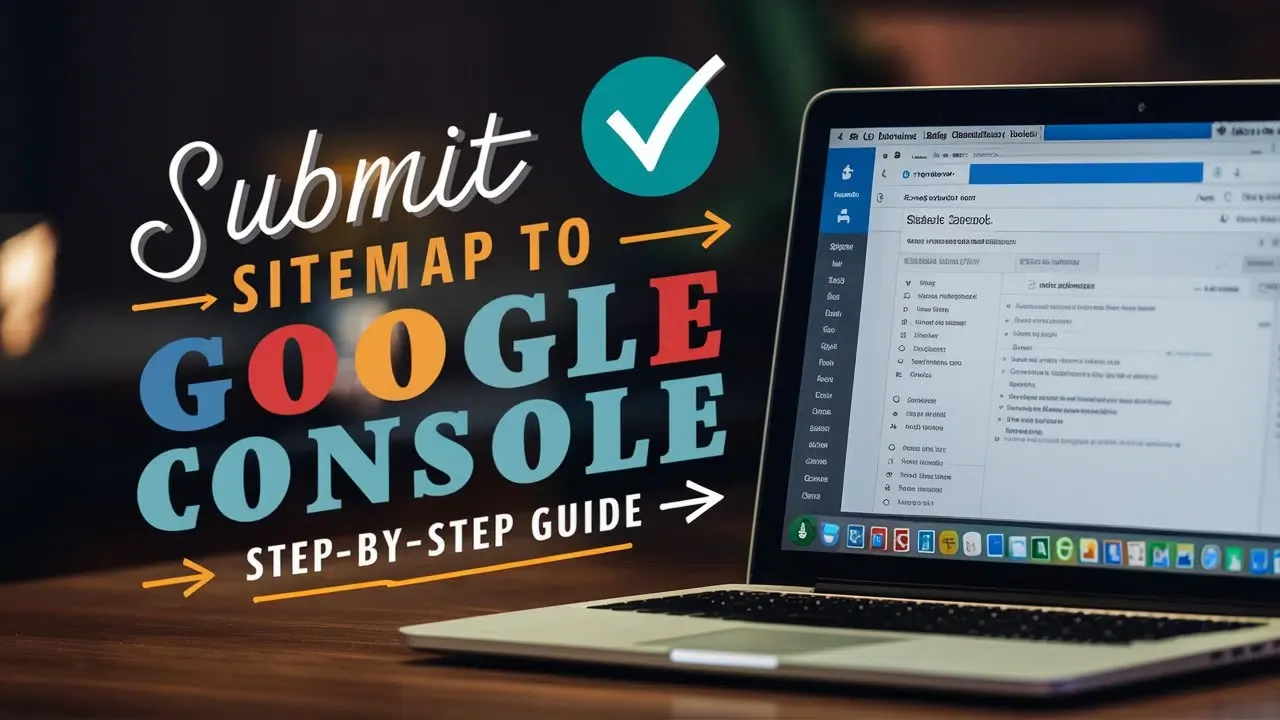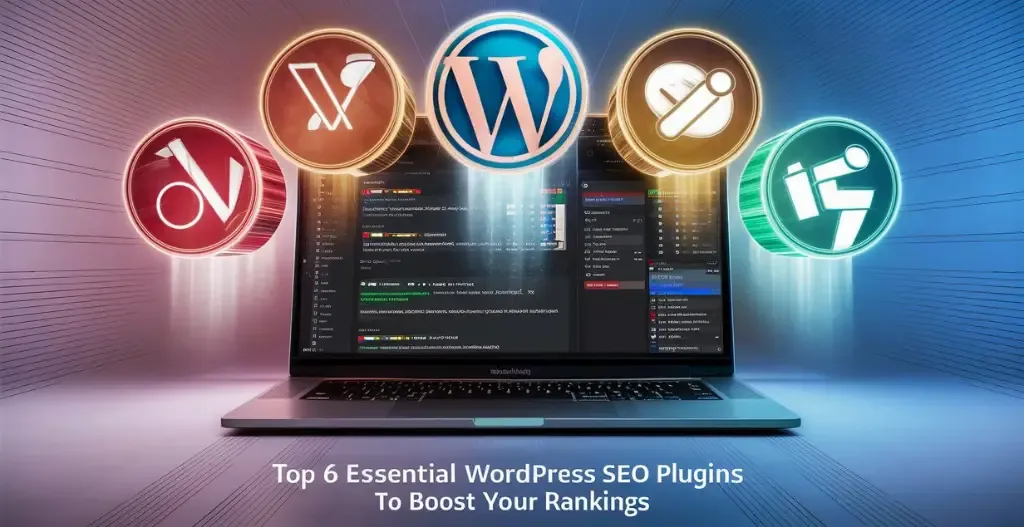In today’s world, having a solid online presence is a must, whether you’re running a business or just trying to get your name out there. One important thing to know is about Domain Authority (DA). Think of it as a score from Moz that tells you how likely your website is to show up in search engine results. It ranges from 1 to 100, and basically, the higher the score, the better your chances of being found online.
But here’s the catch: boosting your DA isn’t something you can do in a day. It takes time and a bit of elbow grease. That’s why we at Owrbit put together this guide with five easy strategies to help you level up your Domain Authority. We’ll cover things like creating awesome content, getting good backlinks, optimizing your site, and using social media effectively.
Whether you’re a web whiz or just getting started, these tips will help you improve your DA, climb the search rankings, and get more visitors to your site. So, let’s jump in and see how you can make your online presence even stronger!

Introduction: Understanding Domain Authority :
Domain Authority (DA) is a term you might have heard if you’re into building websites or blogging. Simply put, it’s a score that gives you an idea of how likely your website is to rank well on search engines like Google. Think of it as a kind of reputation meter for your site.
This score, which goes from 1 to 100, was created by a company called Moz. The higher your score, the more trusted and authoritative your site is seen to be. So, if your website has a high DA, it’s more likely to pop up near the top of search results when people search for topics related to what you offer.
Why does this matter? If you’re trying to get more eyes on your website, understanding Domain Authority can really help. It encourages you to focus on creating quality content and getting links from other credible sites. In the end, a better DA can lead to more visitors, which is something every website owner wants.

Why Domain Authority Matters for Your Website?
- What is Domain Authority?
- It’s a score from 1 to 100 that predicts how well your site will rank in search results. Higher scores mean better chances of getting noticed.
- Visibility in Search Results :
- A higher DA score means your site is more likely to appear at the top of search results, which leads to more visitors checking out your content.
- Building Trust :
- Websites with higher DA are seen as more trustworthy. When people see your site ranks well, they’re more likely to believe in what you’re offering.
- Stay Competitive :
- In a crowded online space, a strong DA helps you stand out from the competition. It can attract more organic traffic without relying on ads.
- Long-Term Investment :
- Improving your DA takes time and effort, like creating quality content and earning backlinks. But all that work will pay off over time!
- Measure Your Progress :
- Tracking your DA helps you see how well your SEO strategies are working. If your score is going up, you’re on the right track!

How to Measure Your Domain Authority of Your Website?
- Use a DA Checker Tool:
- Try tools like Moz’s Link Explorer, Ahrefs, or SEMrush.
- Understand the Scale:
- DA scores range from 1 to 100; higher scores indicate better ranking potential.
- Check Your Backlinks:
- Review the number and quality of backlinks to your site using the DA checker tools.
- Monitor Your Progress:
- Regularly check your DA score to track improvements over time.
- Compare with Competitors:
- Look at the DA scores of competitors to assess your standing.
- Focus on Quality Content:
- Improve your DA by creating quality content and earning reputable backlinks.

Top 5 Proven Strategies to Increase Your Domain Authority :

#1 Create High-Quality Content :
Creating valuable content is one of the best ways to boost your Domain Authority. This means writing articles, blog posts, or making videos that truly help your audience. Focus on topics that people care about and answer their questions.
When your content is good, people are more likely to share it and link back to it, which improves your DA. Use keyword research to find out what your audience is searching for, and make sure to keep your content fresh and updated.
Mixing different content types, like videos and infographics, can also help keep your audience engaged. Share your content on social media to reach more people and attract more traffic to your site. The more interaction your content gets, the better chance you have of earning links from other trustworthy websites. In short, by consistently creating high-quality content, you’ll not only serve your audience well but also build your site’s credibility, helping to increase your Domain Authority over time.
#2. Build High-Quality Backlinks
High-quality backlinks are essential for improving your Domain Authority. A backlink is when another website links to yours, which acts like a vote of confidence in your content. To start building backlinks, look for reputable websites in your niche and ask if you can write a guest post for them.
You can also create valuable resources, like in-depth guides or infographics, that other sites will want to link to. Another tactic is to find broken links on authoritative websites and suggest your content as a replacement.
Networking with other bloggers can also help you get backlinks. Join online communities and engage with others’ content; building relationships can lead to more linking opportunities. Remember, it’s more important to have quality backlinks than a lot of them. Focus on earning links from high-authority sites. Over time, this strategy will improve your site’s reputation and help increase your Domain Authority.
#3. Optimize On-Page SEO
Optimizing your on-page SEO is key to increasing your Domain Authority. On-page SEO means improving individual web pages to help them rank better in search results. Start by organizing your website in a way that’s easy to navigate for both users and search engines. Use clear headings (like H1, H2, H3) to structure your content.
Next, do some keyword research to find the right terms that your audience is searching for, and use these keywords naturally in your titles and content. Avoid cramming too many keywords into your text, as this can hurt your rankings.
Make sure to optimize your images by giving them descriptive filenames and alt text. This helps with accessibility and gives search engines context. Check your website’s loading speed; faster sites tend to rank better. Use tools like Google PageSpeed Insights to see how you can improve loading times. Finally, ensure your site is mobile-friendly since many users browse on their phones. By focusing on these on-page SEO strategies, you’ll create a better user experience and increase your Domain Authority over time.
#4. Engage on Social Media
Being active on social media is a great way to boost your Domain Authority. Social media platforms allow you to connect with your audience, share your content, and drive traffic to your website. Start by identifying which social media channels your target audience uses the most and focus on those platforms.
Once you have a presence, regularly share your content and interact with your followers. Post links to your blog articles and other content, and use eye-catching visuals to draw attention. Engaging content is more likely to get shared, increasing your visibility.
Engage with others by replying to comments, joining groups, and participating in discussions. Building relationships with other bloggers and brands can lead to collaborations that benefit both parties. You might also consider running social media campaigns or contests to boost interaction and attract new followers.
Keep track of your social media performance to see what types of content your audience enjoys most. Adjust your strategy based on this feedback. By actively engaging on social media, you can drive more traffic to your site, enhance your brand’s reputation, and improve your Domain Authority.
#5. Monitor and Improve Technical SEO
Keeping an eye on your technical SEO is important for boosting your Domain Authority. Technical SEO refers to the behind-the-scenes elements of your website that impact how it’s seen by search engines. Start by checking if your site is crawlable and indexable using tools like Google Search Console.
Speed is crucial—make sure your website loads quickly. Slow-loading sites can turn users away and hurt your rankings. Use tools like GTmetrix to analyze your site speed and get tips for improvement, like optimizing images.
Also, make sure your website has a secure connection (HTTPS), as users and search engines prefer safe sites. Keep your URLs clean and straightforward, using relevant keywords where appropriate.
Lastly, ensure your site is mobile-friendly, as more people are browsing on phones nowadays. Use Google’s Mobile-Friendly Test to check how your site performs on mobile devices. By focusing on these technical SEO aspects, you create a solid foundation for your website, which can lead to a higher Domain Authority over time.
How to Check Domain Authority for your Website?
1. Use Moz’s Link Explorer
- Visit Moz: Go to Moz’s Link Explorer.
- Enter Your URL: Type in your website’s URL in the search bar.
- Get Your DA Score: Click “Search” to see your DA score along with other metrics like backlinks and page authority.
2. Use Ahrefs
- Go to Ahrefs: Visit Ahrefs.
- Site Explorer: Use the “Site Explorer” feature.
- Input Your URL: Enter your website’s URL to see your domain rating, which is similar to DA.
3. Use SEMrush
- Visit SEMrush: Go to SEMrush.
- Domain Overview: Navigate to the “Domain Overview” section.
- Enter Your Domain: Input your domain to view its authority score and other relevant metrics.
4. Check with Ubersuggest
- Visit Ubersuggest: Go to Ubersuggest.
- Search for Your Domain: Type in your website’s URL in the search bar.
- View Domain Score: Look for the “Domain Score” in the results.
5. Using Free DA Checker Tools
- Search Online: You can find various free DA checker tools by searching “free DA checker.”
- Enter Your URL: Input your website’s URL into one of these tools.
- Get Results: The tool will provide your DA score and may also offer insights into backlinks and other metrics.
Additional Tips:
- Regular Monitoring: Check your DA regularly to track improvements over time.
- Compare with Competitors: Use the same tools to check your competitors’ DA for benchmarking.
By following these steps, you can easily check your Domain Authority and gain insights into your website’s performance!
Conclusion: Summary of Strategies
Boosting your Domain Authority (DA) is essential for standing out online, and here’s a simple recap of the strategies we discussed:
- Create High-Quality Content: Focus on producing content that genuinely helps your audience. Whether it’s articles, videos, or infographics, make sure it’s informative and engaging. When your content hits the mark, people are more likely to share it and link back to your site, which is great for your DA.
- Build High-Quality Backlinks: Getting backlinks from trustworthy websites is like receiving a vote of confidence. Reach out to reputable sites in your niche to write guest posts or create valuable resources that they’d want to link to. Building these connections can significantly enhance your credibility.
- Optimize On-Page SEO: Make your website easy to navigate and ensure that it includes relevant keywords. Pay attention to headings, image descriptions, and make sure your site works well on mobile devices. A well-optimized site not only improves user experience but also helps search engines understand your content better.
- Engage on Social Media: Being active on social media is crucial. Share your content regularly, interact with your audience, and join discussions. This not only helps you connect with more people but also drives traffic to your site, which can improve your DA over time.
- Monitor and Improve Technical SEO: Keep an eye on the behind-the-scenes elements of your site. Make sure it loads quickly, is secure, and is mobile-friendly. Using tools to assess your site’s technical performance will help you identify areas for improvement.
By putting these strategies into action, you’ll be on your way to increasing your Domain Authority, attracting more visitors, and making your mark in the digital world. Remember, improving your DA takes time and effort, but with consistency and patience, you’ll see the fruits of your labor!
Checkout Top 5 Best SMM Panel To Buy Real & Active Telegram Members
Discover more from Owrbit
Subscribe to get the latest posts sent to your email.










